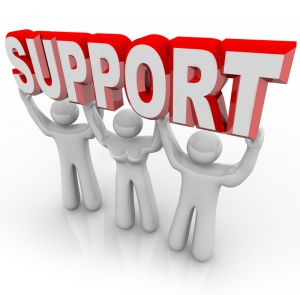Getting over a longstanding drug addiction with the help of Medication-Assisted Therapy (MAT) is a major achievement for any chronic substance-abuser. However, in most cases, the initial detoxification process is only the beginning of a long-term fight against cravings and relapse. Therefore, it is of utmost importance to continue MAT with individual guidance counseling, cognitive behavioral therapy, family guidance and therapy, psychotherapy, group or individual therapy to help completely recover from the addiction and stay clean permanently.
In most cases, drug addiction is typically more than just a physical dependence on drug. Rather, the addict may suffer from mental health conditions that could be simultaneous driving forces towards addiction. Therefore, even if the physical urge has been cured through detox, the psychological and social factors remain as powerful stimuli to instigate a drug relapse. Counselling is designed to help addicts escape the constant craving and learn to cope with reality without being on drugs. In general, there is no one-size-fits all treatment plan for fighting drug addiction; it is tailored according to every individual’s needs and conditions.
- Individual and Group Therapy
Generally, group therapy is preferred over individual therapy because more challenges and support may come from peers undergoing rehabilitation alongside the patient. The 12-step detox program designed by Narcotics Anonymous is a good example of a successful group-therapy organization. On the other hand, individual therapy is beneficial in cases where there could be a dual diagnosis or coexisting mental health conditions, which require special medical care.
- Residential Treatment programs
Residential therapy houses the addicts in a specialized facility for a period lasting from weeks to many months, away from the typical environment, which had driven them into addictive habits. This has been known to be highly effective in the short-term, but whether long-term abstinence is possible is still debatable. Also, Residential programs are very expensive compared to outpatient drug recovery programs.
- Cognitive Behavioral Therapy
Cognitive Behavioral Therapy is a self-help program, which teaches addicts to analyse their moods, thoughts, and situations, which drive their cravings and consequently help them learn to avoid such triggers. The therapist would help replace their  negative feelings with healthier thoughts and actions. The skills learned in such interventional therapies can last a lifetime, thus making it a very powerful method to overcome drug abuse and prevent future relapse.
negative feelings with healthier thoughts and actions. The skills learned in such interventional therapies can last a lifetime, thus making it a very powerful method to overcome drug abuse and prevent future relapse.
- Family or Couples Therapy
Counseling methods involving family members or the spouse of the addicted person can be a strong motivational force for driving change in the life of the addict. Successful recovery from drug abuse and addictions has been observed as a result of family therapy, where the relapse rate is low and the patient’s overall happiness and normalcy are renewed.
- Maintenance Therapy
Some addictions may be lifelong like the chronic illnesses of Diabetes or High BP. For instance, opioid addiction and treatment is believed to potentially last a lifetime. Patients would stay on ‘Maintenance therapy’ using medications like Methadone, buprenorphine or naloxone for many years, assisted by some form of personal counseling. There is plenty of medical evidence proving the high success rate of this treatment and is thus becoming the standard of care to permanently ‘cure’ chronic drug abuse and addictions.

